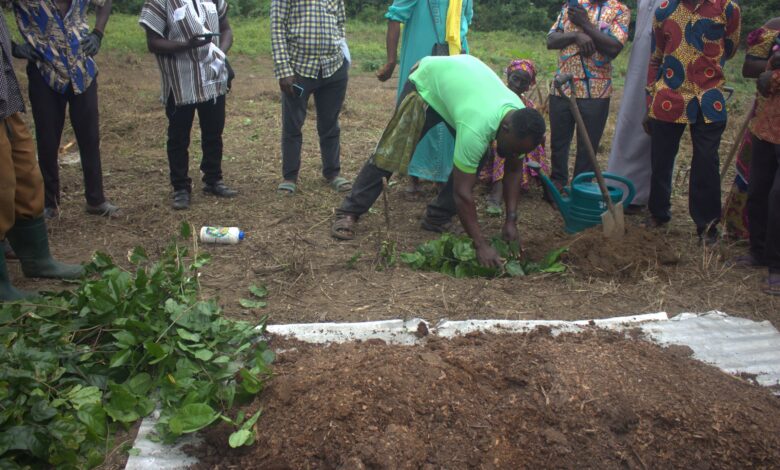
Peasant farmers are calling on the government to review taxes on essential farm inputs as a means to reduce the rising cost of food on the market.
The Peasant Farmers Association of Ghana believes that this step is crucial to revitalize the agriculture sector and improve food security across the country.
Dr. Charles Nyaaba, President of the Peasant Farmers Association, emphasized that the current tax regime on agricultural inputs—such as fertilizers, seeds, pesticides, and farming equipment—has significantly increased the cost of production for smallholder farmers.
These added costs, he said, are directly passed on to consumers, driving up food prices and contributing to the overall cost of living.
Dr. Nyaaba argued that a review of these taxes would not only make inputs more affordable but also lead to a reduction in the price of foodstuffs, which would benefit both farmers and consumers.
“If the government takes this step, it will have a transformative impact on the agricultural sector. The reduction in input costs would enable farmers to expand production and increase yields, ultimately stabilizing food prices on the market,” he noted.
He further explained that the sector is currently grappling with numerous challenges, including erratic weather patterns, high fuel prices, and logistical difficulties, all of which exacerbate the cost burden on farmers.
Addressing the issue of farm input taxes, according to Nyaaba, would provide much-needed relief and encourage more people to invest in farming, especially in rural areas where agriculture remains the primary source of livelihood.
Additionally, the Peasant Farmers Association has called for broader agricultural policy reforms that support smallholder farmers, who make up a significant portion of the country’s food producers.
Dr. Nyaaba urged the government to prioritize investments in infrastructure, such as irrigation systems and rural road networks, to further reduce the challenges faced by farmers.
“If the government heeds our call, the benefits will be widespread. Not only will food prices stabilize, but the sector’s contribution to national GDP will increase, and we will see improved livelihoods for farmers across the country,” Dr. Nyaaba added.
The association remains hopeful that government intervention through tax reductions and targeted support will reverse the declining fortunes of the agricultural sector and contribute to a more robust and resilient food supply chain.
LISTEN TO THE AUDIO BELOW:
Story by Osei Akoto (Teacher Kojo) #Ahotoronline.com




